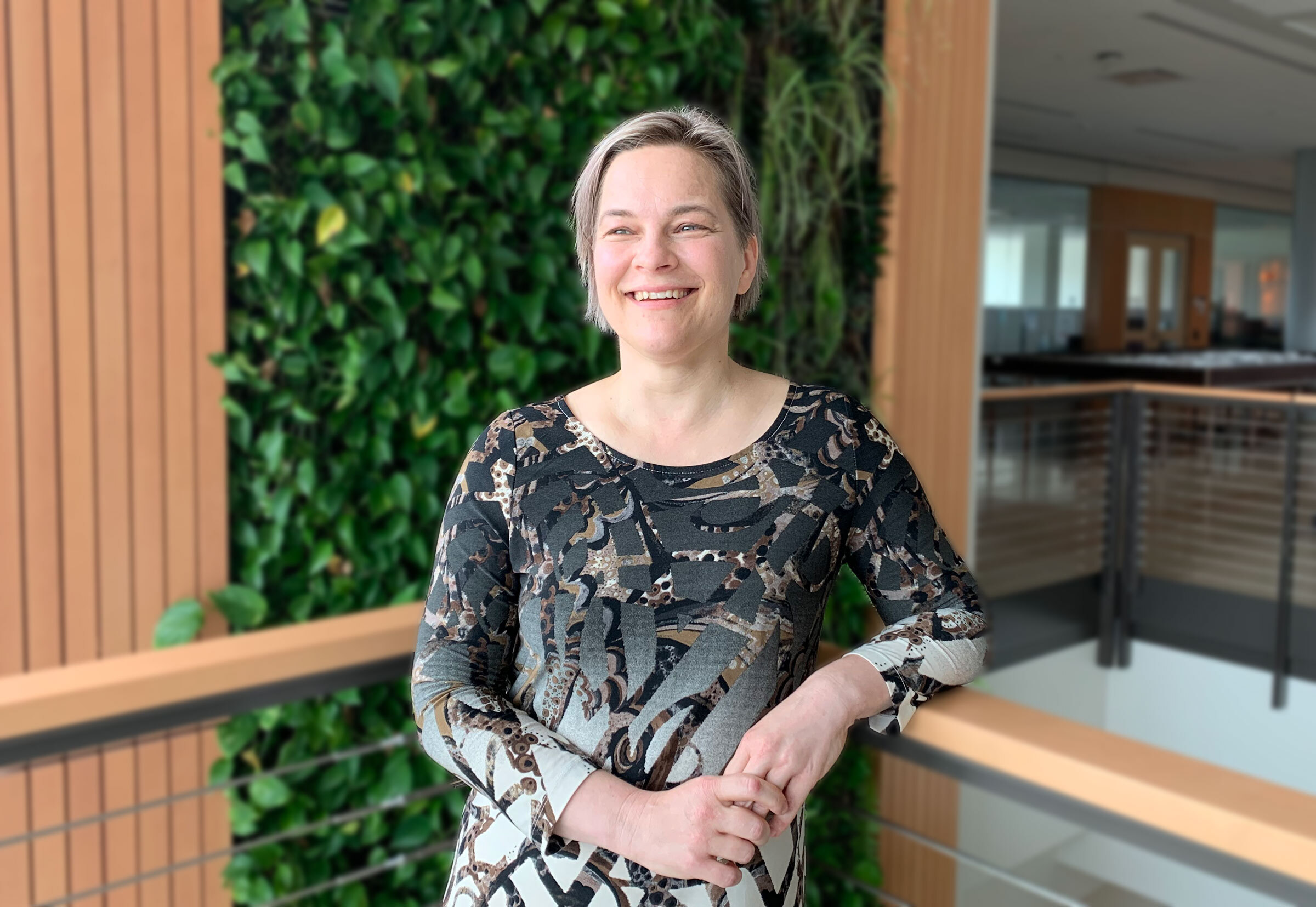Fulbright scholar comes to GIS to study Industry 4.0 as a driver of the circular economy
Dr. Anastassija (Stacey) Konash has joined Rochester Institute of Technology’s (RIT) Golisano Institute for Sustainability (GIS) as part of the prestigious Fulbright Scholar Program. Dr. Konash is a project manager at the Swinburne National Industry 4.0 Testlab, an Industry 4.0 research and innovation hub based at Swinburne University of Technology in Melbourne, Australia. Before joining Swinburne, she worked in the medical-devices industry. She was a research fellow at Monash University and the University of Hawaii. Dr. Konash earned a doctorate in bioelectrochemistry from the University of Limerick, Ireland.
As a visiting scholar, Dr. Konash will investigate GIS’s strategies to promote the adoption of Industry 4.0 technologies among U.S. manufacturers of carbon-fiber composites. She will work closely with Dr. Nabil Nasr, GIS’s founding director, who will serve as her faculty advisor over the course of her research. Like previous Fulbright scholars that have come to GIS, she will have the opportunity to collaborate with Dr. Nasr and other GIS faculty on relevant projects. The United Nations predicts that the population worldwide will increase from 7.7 to at least 11 billion people by 2100. The body warns that growing material demand will not only threaten the Earth’s ecosystems but deplete its natural resources for future generations. Industry 4.0 and the circular economy together describe what a sustainable future could look like when it comes to materials and industry. Dr. Konash’s research explores how strategies blending these concepts could disrupt current business models in order to decouple economic growth from resource consumption.
Dr. Konash’s work at RIT will focus on strategies that research organizations can use to engage small businesses—including “micro” businesses (which have less than 50 employees)—to adopt advanced technologies and materials like carbon-fiber composites.
Carbon-fiber composites are highly engineered materials that are used to make products like wind turbines, airplane parts, and vehicles lighter, thereby decreasing the carbon footprint of these products when they are in use. However, most recycling methods today diminish the mechanical and physical properties of recovered materials, weakening their economic value. Dr. Konash believes that improving the recovery of carbon fiber from post-consumer products offers a compelling opportunity for saving businesses energy and costs while avoiding the high-impact extraction and processing of raw material.
“Many manufacturers are struggling to utilize new capabilities, like machine learning and real-time data analytics, due to their reliance on legacy equipment and a lack of resources to investigate the best digital solution for their processes. This is especially true for very small enterprises,” said Dr. Konash to describe the motivation behind her research. “GIS has a well-established reputation when it comes to engaging industry and promoting the adoption of Industry 4.0 technologies. I believe there is a good scope for the exchange of successful implementation case studies that would benefit both Australian and American companies.”
The Fulbright Program funds scholars to undertake further study and research at world-leading institutes and universities. It aims to increase research collaboration and the exchange of ideas, and to strengthen relations between the United States and other countries. Competitively selected students, scholars, teachers, professionals, scientists, and artists from the United States receive scholarships or grants to study, conduct research, teach, or exercise their talents abroad. Likewise, citizens of other countries, like Dr. Konash, are also invited to apply in order to do the same in the United States.







